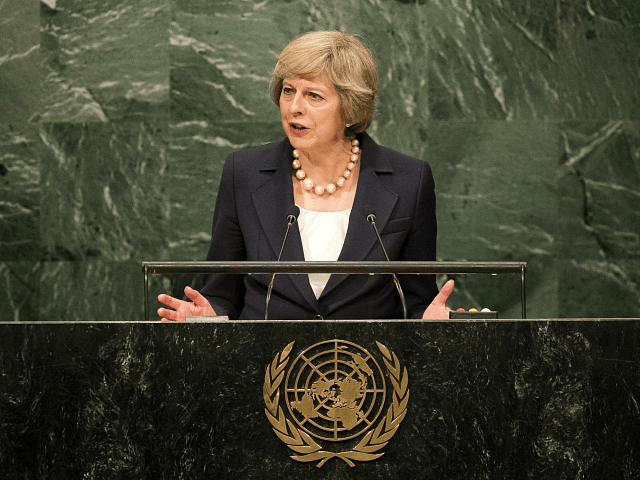The United Nations General Assembly has passed a resolution demanding the United Kingdom surrender the islands of the British Indian Ocean Territory in six months — receiving no support from any EU member-state except Viktor Orbán’s Hungary.
Supporters of Britain’s membership of the European Union, such as deputy prime minister turned Facebook executive Nick Clegg, often argue that the cost in sovereignty is made up by the gain in “clout” on the world stage, with back-up from the bloc’s other 27 member-states allowing the British government to wield more international influence.
However, when the UN General Assembly, which includes representatives from Communist Party regimes, oppressive theocracies, and other near-dictatorships, tabled a motion condemning the United Kingdom’s continued possession of the Chagos archipelago in the Indian Ocean, this “clout” was nowhere to be seen, with Viktor Orbán’s conservative-populist government the only one in the EU — with which it is frequently at odds — to take the British side, according to the BBC.
The assembly voted 116-6 in favour of resolution — non-binding, fortunately — tabled by Senegal on behalf of the Africa Group, which endorsed an International Court of Justice (ICJ) ruling — also non-binding — that the British Overseas Territory should be surrendered to the Republic of Mauritius within six months.
Karen Pierce, the British Permanent Representative to the United Nations, had argued ahead of the vote that British-American military facilities leased to the United States on, in particular, the British Indian Ocean Territory island of Diego Garcia, played “a vital role in our efforts to keep our allies and friends, including Mauritius, in the region, and beyond, safe and secure.”
“[T]the world is a dangerous and an uncertain place,” she said, arguing that the base “is vital to efforts to combat conflict, terrorism, drugs, crime, and piracy” and recalling its role hosting one of the world’s four GPS stations, major seismic monitoring technology, and humanitarian capabilities which “contributed heavily to international humanitarian responses to the 2004 Indian Ocean earthquake and tsunami; the 2011 earthquake and tsunami affecting Japan; and the 2013 typhoon affecting the Philippines.”
Pierce added that the United Kingdom was “not in doubt about our sovereignty over the British Indian Ocean Territory”, observing that “It has been under continuous British sovereignty since 1814” and “Contrary to what has been said today, it has never been part of the Republic of Mauritius.”
She also pointed out that, “In 1965, the Mauritian Council of Ministers freely entered into an agreement to detach the British Indian Ocean Territory in return for a range benefits including fishing rights and natural and marine resources.”
Neither the assembly as a whole or Britain’s supposed “European partners” — with the exception of Hungary, were moved by the British case, however, seeing its possession of the territory as a legacy of colonialism which the UN must dismantle.
Britain’s small smattering of supporters included President Trump’s United States, their kinsmen in the Commonwealth realm of Australia, and the Mauritians near-neighbours in the Maldives — perhaps giving some indication of where the country should focus its alliance-building efforts after Brexit.

COMMENTS
Please let us know if you're having issues with commenting.